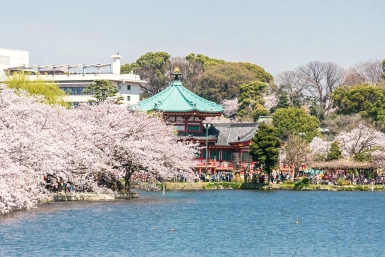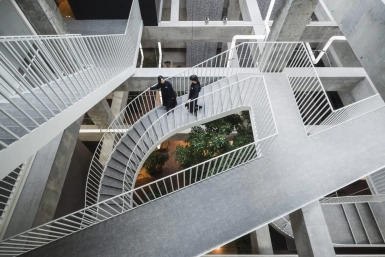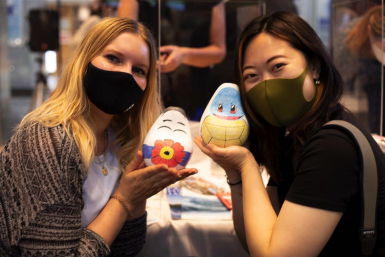Whether we scoured online forums for new openings or we applied to the coveted JET program, teaching English is how many expats first start their lives in Japan. Despite teaching ranking among the most common jobs for non-Japanese residents and being one of the few industries the Japanese government claims to need migrants for, there are issues that have yet to be recognized and fixed. One of those issues is diversity. We chatted with Mystique Matsuo, the founder and CEO of English Unlimited, a new modern language school based in the Gyoenmae neighborhood that is putting sexual and cultural diversity at the forefront.
Matsuo arrived in Tokyo in 2019. She moved to Japan for love but has been involved in language teaching long before hopping on a plane to Narita. She is professionally trained to teach English as a second language and was already involved in the field back in Vancouver, Canada. In addition to the already well-known issues with dispatch companies in Japan, Matsuo noticed there was a huge silencing of LGBT voices. Not that members of the community would be refused a job but rather that they had to lie about their sexuality.
“While heterosexual teachers could talk about our partners openly to students,” says Matsuo, “lesbian or gay teachers had to make up this persona that fit the heterosexual norm to talk about their partner to their students.” The reason many dispatch companies had given to justify this invasive request? That it could make the students uncomfortable or make them quit and go to another language school, an answer that is concerning, to say the least.

“Sexual diversity, and many other types of diversities, is something that you will encounter when you travel abroad,” Matsuo says. While LGBT rights in Europe and in North America still have a long way to go to match that of the current gender norms, the road to full acceptance in Japan is much, much longer. Matsuo finally decided to quit her job at a Japanese English school to start her own company, English Unlimited, in the summer of 2020, setting diversity as one of her top priorities to recreate a “true foreign atmosphere”. She hopes her teachers and her students can feel comfortable being open about anything, including their sexuality.
Matsuo’s efforts to change the approach to English learning in Japan don’t stop there. The curriculum strays from what you can expect to find in traditional English classes. Her lessons focus on sounding natural and understanding nuances of conversational English, which she found lacked in other language schools. She doesn’t spend so much time censoring her speech and isn’t afraid to teach what other schools might consider “dirty” or “improper” vocabulary and expressions. Even for students of Japanese, slang comes much much later in the curriculum, if at all. Matsuo takes it upon herself to keep track of internet slang to make sure her students will be able to enjoy and eventually engage with trends and online content. This is notably what she does on Instagram, collaborating with influencers like Stanley Fukase.

English Unlimited is still very much a small company, but Matsuo has ambitions of grandeur for a field that needs a lot of structural rework to make it possible for non-Japanese residents to flourish in. For now, she focuses on providing quality lessons to a small group of students, making sure everybody is represented fairly and providing a welcoming environment for all.
If you know anybody who is looking to learn English, English Unlimited now offers online classes for as long as the pandemic will last. You can check out available lessons and more on English Unlimited’s website here.
Follow English Unlimited on Instagram, or forward their website to anybody who is looking to learn English online to support this local business.









